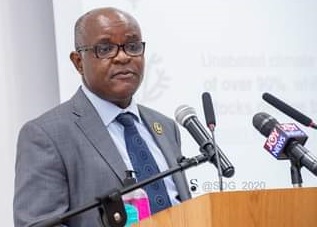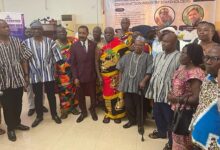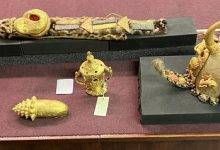
The country is on the verge of losing its major monuments along the coast if measures are not instituted to stem the increasing sea erosion, a new research has revealed.
The study conducted by the Institute for Environment and Sanitation Studies (IESS) at the University of Ghana (UG), identified some of the monuments as the Christianborg Castle, Independence Square and the Kwame Nkrumah Mausoleum.
Titled “The continuous struggle for space-coastal erosion in Ghana”, it was to assess the structural integrity of such national monuments.
This was disclosed by the Director of IESS, Prof. Kwesi Appeaning Addo, in his inaugural lecture at UG on Thursday.
According to Prof. Addo, the increasing nature of human activities such as sand mining, construction of sea defense systems and houses, as well as the building of dams which was a contributing factor to the fast coastal erosion experienced in the country could lead to the loss of the major monuments.
For him, although the coastal erosion was not a new phenomenon in the country, there was the need to urgently address it due to the intensity at which it was occurring.
According to Prof. Addo the coastal zone of the West Africa sub region which generates about 56 per cent of its Gross Domestic Product (GDP) and served as home to about 31 per cent of its population could exceed 70 million by 2050.
In addition, he professed that “Ghana’s coastal zone offered about seven per cent of the total land. However, it is occupied by one third of the population and home to over 70 per cent of our industries.”
Meanwhile, Prof. Addo expressed worry about the lack of a proper coastal erosion management policy to address the issue of coastal erosion in the country.
He explained that the hard engineering approach being used to address the phenomenon had not yielded the desired results, hence, the need to find a new approach in solving it.
Prof. Addo for this reason made some recommendations which included the reduction of hard engineering approaches by government, adoption of an inclusive coastal development approach by incorporating local decision processes, adoption of the nature based and hybrid systems approaches, formulation of coastal erosion policies, exploration of coastal ecosystems and increased funding for coastal research.
He also called on all relevant stakeholders that matter to up their mantel in ensuring that the coastal lands were protected for future generations as well as protecting the public purse.
Prof. Addo also received presentations from various departments of the UG, old students of Koforidua Senior High Technical School, his alma mater, the Presbyterian Church of Ghana and his family for his contributions to academia.
BY BENJAMIN ARCTON-TETTEY







